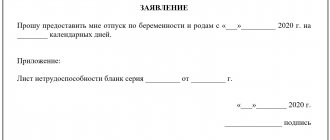How should you behave during interrogation? What is the difference between interrogation and interrogation?
Sometimes it comes as a complete surprise to some citizens when they receive a summons from the police to appear before an investigator, and even more so when this happens for the first time in their life. Many will agree that this event will cause them to experience psychological stress; it is quite natural that some will be nervous and worried. And this is understandable, since ordinary citizens and ordinary people do not know the laws, they do not know all the concepts and types of crimes, etc. However, there is no need to be nervous and there is no particular reason to panic. Before you go when called to the police, you need to study your basic rights and learn how to behave during interrogation.
Regardless of the grounds and reasons why you are called in for questioning, you need to: do not be nervous; don't panic; tune in to a calm conversation; answer confidently and only to those questions that you have no doubt about; Be sure to maintain restraint and composure. Excessive openness and excitement will allow the investigator to doubt the veracity of the information you provide. You need to think through every phrase and every gesture down to the smallest detail.
It will not be superfluous for you to know that if you have received a summons for questioning from the police for interrogation or questioning (explanation), then it is important to understand that you are not waiting for a friendly or comradely conversation, but a serious conversation. Of course, it would be better to come to the police station with a lawyer. It is also necessary to know that there is a big difference between interrogation and interrogation and not to confuse these two concepts. The interrogation is carried out on the basis of an open criminal case, and the interrogation is carried out only during a pre-investigation check. You can also refuse the interview without any consequences for yourself, but you can no longer refuse the interrogation.
How to behave during police interrogation?
- Evaluate every word during police interrogation. “First testimony” has a dominant role in the investigation of a case. It is on them that the entire position of the prosecution will be built. It is extremely difficult to refute them later. In answering the questions posed by the investigator, everything is important - from the reaction to the question to the construction of the answer itself. In the second case, we are talking about the fact that the same situation can always be presented in different ways. This can be achieved by using synonyms, contrasts and other ways of presenting information. A prime example of this is the question: is the glass half empty or half full? Sometimes the procedural status of a person (victim, witness, suspect, accused) depends on the answer to a specific question. The Law Office "Katsailidi and Partners" recommends consulting with an attorney in private before giving testimony.
- Record your testimony on paper, and also make extracts from the procedural documents provided for review. Carefully study the protocols of detention, interrogation and others if you give repeated testimony. There is no doubt that in a calm and familiar situation you can look at the interrogation situation “differently.” To do this, it is necessary to record all procedural documents, as well as everything that happens on paper or using audio recording, photo/video recording. However, in practice this is not always possible due to opposition to the process in question by law enforcement officials.
- Ask to take photos of documents being signed and studied. Properly recorded illegal actions and decisions of officials may subsequently become the subject of appeal and a means of proving such actions and decisions.
Be attentive to the actions of employees before interrogation by the police and during the investigative action - after that you can file a complaint in a criminal case to bring to justice those responsible for violating your constitutional rights and freedoms.
USEFUL: watch a video on how to behave during interrogation, with advice from a criminal lawyer, write your question in the comments of the video to get a free answer on the YouTube channel
Summons from the police
When delivering and receiving a subpoena from the police, you should carefully study and read it. This subpoena must include your full name, the time for which the interrogation is scheduled, the address at which it will be conducted, the position, surname and contact information of the investigative official who is calling. You should pay attention to who you are being called in as: a victim, a witness or a suspect. If you are called as one of the last two groups of people, then I recommend that you immediately seek qualified legal assistance from a lawyer, and it would not be out of place if you came to the meeting with the investigator, accompanied by a lawyer. It would also be a good idea to clarify and ask by phone number contained in the summons what case you are being summoned for. In this case, after clarification, the conversation with the lawyer will be more substantive, and he will be able to give you his recommendations on what to say and how to behave during interrogation, if you decide to go to the police yourself. If the address indicated in the summons does not coincide with the location of the police department, then this fact should alert you. In this case, you should call the duty department back and clarify why the inquiry or investigation will not be carried out in the office of the inquiry officer or investigator. Sometimes there are cases when, for objective reasons, a meeting cannot take place on police premises. In this case, you need to insist on moving it to your place of residence, etc. The law gives you this right.
What rights are granted by law during interrogation?
In order to avoid any misunderstandings and consequences, as well as to successfully pass an interrogation by the police, you need to know your rights, which are provided by the current legislation of the Russian Federation. If this is an interview and not an interrogation in a criminal case, then you can safely refuse it, without any further consequences. Also, if you are summoned for questioning as an accused, you can also refuse it, since this is a right of the defense. Before the interrogation begins, the investigator must explain to you all your rights and obligations. If this has not been done, then you can also not answer the questions without any consequences. You also have the right to write your testimony yourself. The investigator, upon completion of the interrogation, is obliged to provide you with a protocol for your review. After which, if you have any comments or inaccuracies, you should inform them to the investigator and the latter must include them in the protocol. If you were not given a protocol to sign and you did not sign for it, it will be invalid. According to Art. 51 of the Constitution of the Russian Federation, everyone has the right to refuse to testify if they testify against himself, his spouse and his close relatives. Moreover, it is not necessary to provide the reason for the refusal, and it does not matter whether you are a witness or an accused. Also, if any testimony cannot be given because the citizen simply does not remember it, or remembers it only partially, he may refuse to give it. If the interrogation is conducted by an investigator who is not listed in the protocol, then this is a violation of the citizen’s rights, and therefore, he is not obliged to answer questions. We must always remember that everyone has the right to legal assistance during interrogation. Moreover, he may refuse to testify until a lawyer arrives. If a citizen does not have a lawyer, then the investigator is obliged to provide these services and provide a lawyer.
Basic rules of conduct during interrogation
If a person has been summoned to a procedural conversation with law enforcement agencies, this means that employees of the Ministry of Internal Affairs want to receive any information regarding the crime committed.
The investigator conducts interrogation only after the case has been opened. If a citizen receives a summons for an inquiry, he should:
- Visit law enforcement agencies at the appropriate time. If this rule is violated, the person will be brought here forcibly.
- If a citizen was summoned for a conversation with an employee of the Ministry of Internal Affairs as a suspect, he has the right to take a lawyer with him or ask the investigator to appoint one.
- Victims and witnesses are always summoned for questioning using a subpoena. The witness can immediately come with a lawyer.
You can't be afraid
This is the most important rule for those people who do not know how to behave during interrogation. Whether the citizen is in the Ministry of Internal Affairs as a suspect, witness or victim does not matter in this case. Being in law enforcement is a stressful situation for absolutely everyone.
Important! An adult cannot be interrogated for more than eight hours a day. In addition, the person being interviewed has the right to breaks for one hour. If this legislative norm is violated by the investigator, you can file a complaint against him with the prosecutor and the court authorities.
A procedural conversation can last four hours without interruptions.
During interrogation, it is necessary not to lose composure, not to be rude to the employee of the Ministry of Internal Affairs and not to constantly prove that you are right. This rule applies not only to those accused of committing a crime, but also to witnesses and victims.
There is no need to be afraid of an operative when communicating with him; in fact, he is the same person, simply fulfilling his job duties. He needs to solve the crime, including in order to improve his performance.
All people interested in the question of the rules of conduct during an inquiry should know that they must clearly answer the police officer’s questions and sign the protocol.
Recommendations on how to respond during interrogation?
You need to say as little as possible and in no case say too much. Answer the investigator's questions clearly and concisely to avoid double interpretation of the testimony by the investigator. You should think about your every answer, gesture, action, etc. Do not answer questions that are not indicated in the interrogation protocol. There is no need to be afraid to answer questions. If you doubt a particular answer, then you can simply remain silent during interrogation, citing the fact that you do not know the answer, etc. Answer questions without rudeness and politely. Under no circumstances should you answer questions in which there is a possibility that they will testify against you. During interrogation, a protocol must be drawn up. All questions and the answers received are recorded in it. The witness and the accused have the right to fill out the described document with their own hands. At the end of the interrogation, the investigator hands over the document to the witness for review.
Myth 3: Refusal to incriminate yourself is the best (worst) defense.
According to the rules of Article 51 of the Constitution, any person has the right not to testify against himself, his spouse and close relatives. This right serves as a guarantee that ensures the dignity of a person, the inviolability of his private life, personal and family secrets.
For an investigator, refusal to testify is a formed position of the person being interrogated. Sometimes this may be quite enough for him. In this case, there is no information that contradicts the investigator’s version of the criminal case, the formal requirements to ensure the completeness of the investigation have been fulfilled, and the investigator will no longer interrogate the person again.
However, every criminal case is unique, and there is no universal advice. Situations can be completely different, including those where the optimal tactic for the defense is to provide the most detailed testimony that refutes the false version of the investigation. Protection at the stage of preliminary investigation is of great importance, because there are very few acquittals in Russia and, if possible, it is better not to bring a criminal case to trial.
If you are not ready to immediately answer the investigator’s question, remember your absolute right to sufficient time and opportunity to prepare for your defense. If you are in a difficult situation, you can point out that you need to remember in detail the events that the investigator is interested in, or study documents, and this will take time. It is advisable to carefully record the investigator’s questions. This will significantly help in preparing the position and analyzing the situation.










